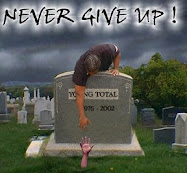The most important aspect of American investigative journalist Bob Woodward's book, Obama's Wars, about the conflict in Afghanistan, is not the inside dope that he was able to dig out. It is rather that he so easily got many insiders to blab.
Woodward did ferret out some interesting stuff. One of the best bits is on how President Barack Obama's generals kept trying to get him to give them more troops. As soon as he'd set the number at 30,000, rather than the 40,000 they'd demanded, they immediately proposed he send in 4,500 “enablers” — that is to say, more troops under a different name.
Obama actually comes out well. He was trapped: He couldn't bug out after George W. Bush's “surge” had seemed to have worked in Iraq. But he knew the Afghan war was unwinnable in conventional terms, telling White House aides there had to be a plan “about how we're going to hand it off and get out.”
Gen. David Petraeus, now the U.S. commander in Afghanistan, also comes out well. In an interview with Woodward, Petraeus said, “I don't think you win this war . . . You have to stay after it. This is the kind of fight we're in for the rest of our lives, and probably our kids' lives.”
Both are highly intelligent men. Each has a private agenda. Obama described his by his now much-quoted comment, “I can't lose the whole Democratic party.” Republican critics have made much of this, but any president who doesn't worry about votes won't be president for long.
Petraeus's private agenda is the honour of the U.S. military. His purpose in Afghanistan is not to win — the goal all generals have sought throughout history — but not to lose, or at least not to be seen to have lost.
So why did so many White House and Pentagon insiders blab so readily to Woodward?
Because they, too, if less perceptively than Obama and Petraeus, know they are engaged in an unwinnable war.
Call it a new kind of war, a postmodern war. It has no beginning: Afghans have fought almost continuously for centuries, against outsiders but as readily against each other.
It will have no end but will eventually peter out whether the Americans are there or not. Certainly there will be no victory parades, by anyone.
It has no particular purpose. There's jihad, of course. But Afghans aren't by nature religious fanatics.
Americans, understandably, are afraid that if the Taliban win, Al Qaeda will use the country as a base.
But Al Qaeda doesn't need a physical base. It's a virtual terrorist organization, an idea, a brand name, nothing that anyone can wrap their hands around and blow up.
Al Qaeda will also peter out one day, destroying itself because its principal activity has become motivating and training Muslims to kill Muslims — that's what's now going on in Iraq no matter that the Americans have gone.
Killing has become for the terrorists a self-justifying cause. For suicide bombers it's also an immensely satisfying one since there's no clearer proof of having power — as all the teenage bombers lack completely in their own lives — than being able to decide who to kill and how many.
Those insiders broke the rules and blabbed to Woodward because they know the war in Afghanistan is insane, and know as keenly that no aspect of it is more insane than that American troops are still there because no one in Washington has yet been able to figure out how to get them out without being seen to have lost.
By this book, Woodward has done a real service to Americans. Probably without intending to — since while a good journalist, Woodward is no deep thinker — he's told them the truth.























No comments:
Post a Comment